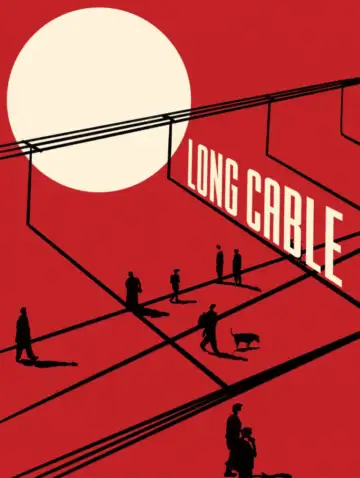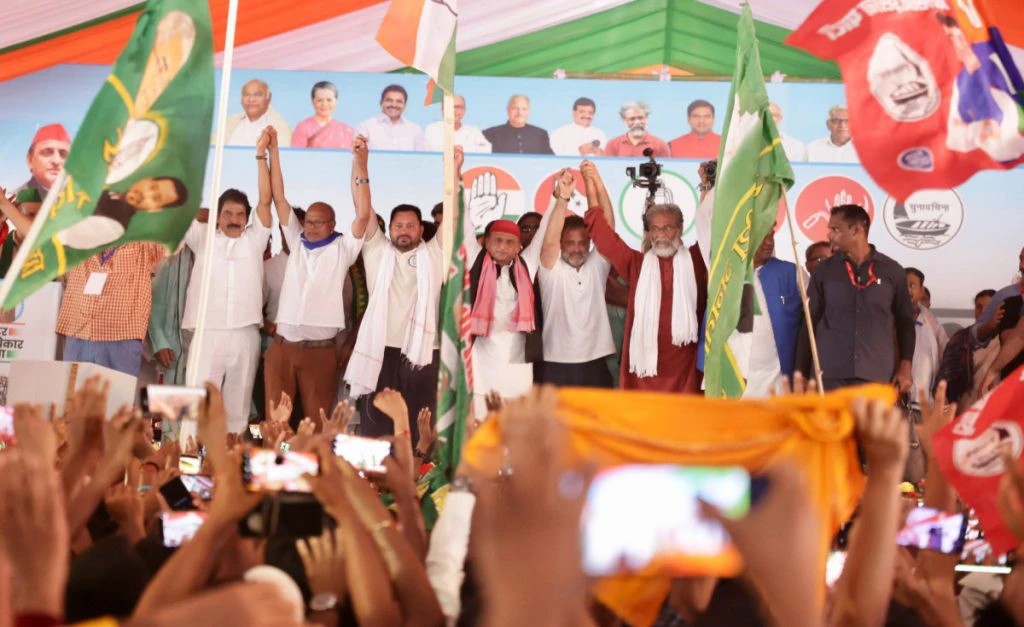The intransigent attitude of the Election Commission of India in recent months has done nothing to restore its credibility, but it has managed to unite the opposition like never before.
The culmination of the 16-day-long “Vote Adhikar Yatra” led by Rahul Ganndhi and Tejashwi Yadav became a show of strength for the opposition. The yatra that passed through 25 of the 38 districts of Bihar, covering nearly 110 assembly constituencies, witnessed top leaders of the INDIA bloc – including Akhilesh Yadav, M.K.Stalin, Hemant Soren, Sanjay Raut and many others – showing up in the poll-bound state. Of course, all Congress chief ministers also made it a point to be seen with Gandhi and Yadav during its course.
 The march drew massive crowds, although it is too early to say whether that reflected the changing political mood of the state. But it can be safely said that the opposition’s narrative of “vote chori (theft of votes)” and its slogan “vote chor, gaddi chhod (vote thief, leave the seat)” has struck a chord with the people of Bihar. It seems to have stuck like no other issue that the opposition has raised in the last few years.
The march drew massive crowds, although it is too early to say whether that reflected the changing political mood of the state. But it can be safely said that the opposition’s narrative of “vote chori (theft of votes)” and its slogan “vote chor, gaddi chhod (vote thief, leave the seat)” has struck a chord with the people of Bihar. It seems to have stuck like no other issue that the opposition has raised in the last few years.
The INDIA bloc constituents, too, ensured that the issue of “vote chori” and EC’s controversial “Special Intensive Revision” that has now ended up removing 65 lakh electors resonated both in the parliament and on streets.
Such has been the opposition efforts to amplify the row, and in the process point towards a larger failing of India’s constitutional offices under the Narendra Modi regime, that the political fault-line has never been sharper.
Fence-sitting parties like the Biju Janata Dal have pointed out supposed evidence of alleged discrepancies in elections, something that aligns with Gandhi’s “vote chori” campaign. The BJP’s ally, the Telugu Desam Party, too, has gone ahead and offered “constructive criticisms” of the SIR to the EC. The Bharat Rashtra Samithi (BRS) also opposed the SIR, advocated that Aadhar and EPICs be used as evidence to confirm validity of electors, and even extended its campaign call to entirely replace EVMs with ballot papers.
As criticism of the EC’s alleged bias mounts, the opposition’s unity signals a consensus that the poll body has moved from being merely ‘partial’ toward the BJP to acting as one of its pliant institutions.
The former CEC Rajiv Kumar echoed many BJP spokespersons when he blamed the critics for peddling a “false narrative” – a term straight out of the saffron party’s political playbook. The serving CEC Gyanesh Kumar has refused to answer any of the questions raised against the SIR in a straightforward manner in the two press briefings that he addressed. Instead, he chose to respond to questions, nearly all of which were critical of the poll body’s contentious conduct, with Bollywood-style theatrics.
The chattaan (rock) idiom he used is a case in point. “The EC stood with Indian voters like a rock, stands with them like a rock and will continue to be with them like a rock,” Gyanesh Kumar said, but offered no concrete responses to the technical questions that were being consistently raised. Rather, he behaved like a politician and took endless digs at Rahul Gandhi.
Who would have thought it would be the EC, rather than the BJP, that provided the opposition with the much-needed impetus to unite, even if unintentionally.
Throughout the monsoon session, opposition gatherings made news – first Gandhi’s dinner at his new home in New Delhi, then the police crackdown on a joint protest against SIR by opposition MPs, the Vote Adhikar Rally in Bihar, and not to forget the announcement of Justice (retired) B. Sudershan Reddy as the INDIA bloc’s candidate in the upcoming vice-president’s election. Incidentally, Reddy has also received AAP’s support, as the opposition has found more things to bond over than squabble.
One way or the other, the last two months have surely marked a turnaround for INDIA bloc’s political, if not electoral, prospects.
Remember how after the 2024 Lok Sabha polls, several INDIA bloc constituents gave mixed signals about the opposition alliance’s future. Top leaders of Trinamool Congress and Communist Party of India (Marxist) distanced themselves from the alliance. Parties like Samajwadi Party supported the Aam Aadmi Party in the Delhi assembly polls, openly defying the Congress. Other smaller outfits indicated in rather strong terms that the INDIA bloc was more of an electoral arrangement than a common ideological platform.
As recently as July, 2025, days ahead of the stormy monsoon session of parliament, the Aam Aadmi Party that was still recovering from its Delhi assembly election loss, formally declared it was stepping out of the alliance.
But here we are: the INDIA grouping seems to have pulled itself together, resolving immediate differences to present a united opposition on every major issue. It has also never been this formidable since the time it began to take shape in early 2023. A number of opposition chief ministers have raised the concern of fair distribution of taxes once again.
The Bihar assembly polls will be INDIA bloc’s first crucial test; the momentum surely seems to be currently in its favour.
This piece was first published on The India Cable – a premium newsletter from The Wire – and has been updated and republished here. To subscribe to The India Cable, click here.
